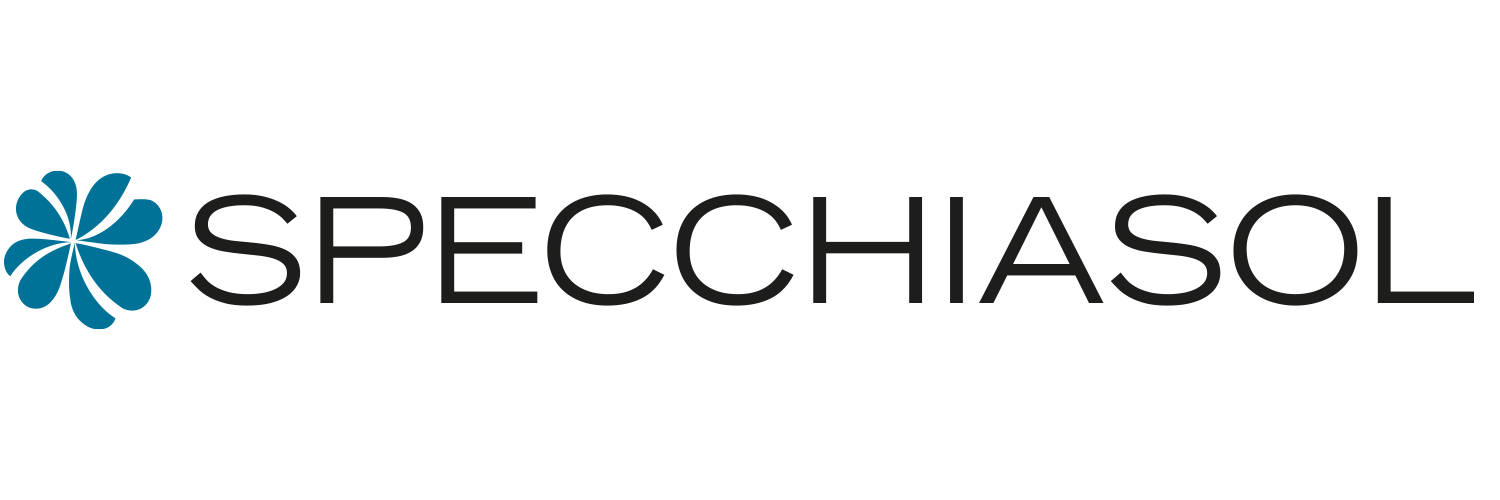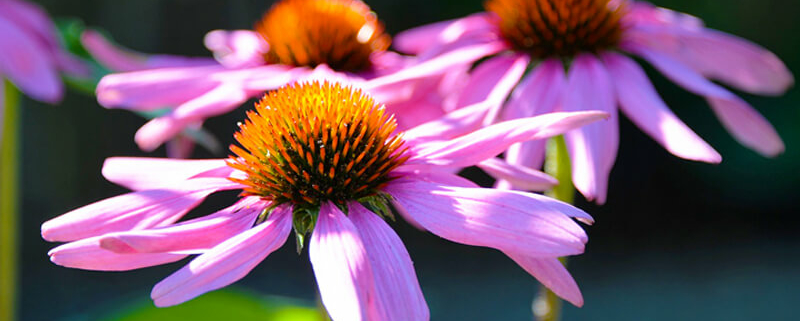How to strengthen the immune system with natural remedies
The defence system
The air we breathe is a carrier of pollution, as it contains huge amounts of particles, some of which are particularly damaging to the airways. If the respiratory apparatus did not have mechanisms to remove and neutralise them, our lungs would be invaded by them and would become victims of a perennial state of inflammation.
The main defence system, localised in the bronchi, guarantees the elimination of gases, vapours, smoke and particles, through mucociliary clearance and coughing.
Mucus is a viscous substance secreted by the mucous glands and the goblet cells located between the cells that line the bronchi, which lubricates and protects the mucous membranes.
Cilia are filiform elements on the mucous membrane of the airways which favour the outwards elimination of mucus. The movement of the set of cilia can be compared to that of a wind-swept field of wheat.
Coughing is a physiological mechanism involving a deep breath in, followed by the closure of the glottis, with an increase in intrathoracic pressure, and by the glottis suddenly opening and air being ejected.
General measures
To prevent a cold from manifesting, it is recommended that hygiene measures be accompanied by maintaining a correct lifestyle.
Below, we will mention some things to do to prevent colds.
- Wash your hands often and well, for at least 40 seconds, with soap and water or with alcohol solutions.
- Avoid close contact with people who exhibit symptoms of a cold (coughing, sneezing) and also avoid unnecessary physical contact.
- Do not touch your eyes, nose and mouth with your hands.
- Cover the mouth and nose with a tissue or with your elbow when you cough or sneeze. Throw the tissues in the bin. Wash your hands immediately after.
- Do not take antivirals or antibiotics unless they have been prescribed by a doctor.
- Clean surfaces with chlorine- or alcohol-based disinfectants.
- The use of a mask helps to limit the spread of germs, but it must complement other respiratory and hand hygiene measures.
- Avoid large meals, reduce calorie intake, avoid meats that are raw or cooked rare, unwashed fruits and vegetables. Opt for fruits and vegetables that are very rich in vitamins. Avoid non-bottled beverages.
- Exercise on a regular basis. Try to sleep an additional hour to promote the defensive response of melatonin and ensure that you are protected from free radicals.
Medicinal plants
In Herbal Medicine, certain natural remedies help increase the defences naturally, to prevent seasonal ailments.
Acerola
Only the red fruit of this woody plant typical of tropical forests is used, which is as large as a cherry, also known by its common name ‘West Indian cherry’. This fruit is very rich in vitamin C (25% of its weight), vitamin A and B6, so it is used mainly for the prevention of cold-related disorders.
Astragalus (Milk vetch)
It is one of the most important plants in Traditional Chinese Medicine, used mainly in conditions characterised by deficiencies in the body’s natural defences. The active ingredients contained in the root have been proven to increase defences, especially at the level of the airways.
These properties are mainly due to the plant’s particular polysaccharides, astraglucans, which effectively increase the number and function of macrophages, the class of white cells that is tasked with attacking and neutralising extraneous particles and microorganisms. Other components of astragalus, such as saponins, increase cellular activity, to reinforce defences.
Echinacea
A herbaceous plant of the Asteraceae family, from North America. Native American tribes have used it for centuries to treat wounds, snake and insect bites, and to counter respiratory conditions that were frequent in the harsh winters.
Echinacea also reinforces the defence system of children. Biochemical research has made it possible to identify the three groups of substances that act together in support of the immune system. They include:
- alkamides, which activate defence cells;
- phenol compounds that act against germs;
- a group of polysaccharides that stimulate the production of substances that aid defences.
Propolis
Propolis is an aromatic resinous substance, usually of a bright brown colour with shades ranging from yellow to black, that the older, more skilled worker bees make in spring from the buds of certain trees and the bark of Conifers.
Due to its properties that repair, stimulate defences and, most importantly, act as antioxidants, propolis is used in herbal medicine to prevent or treat seasonal ailments and to restore the integrity of the mucosas and of the immune system, acting on ‘access doors’ against potential aggressors that threaten its safety.
Elderberry
A shrub of the Caprifoliaceae (honeysuckle) family, of which the flowering tops and the fruits are used. The main components include: tannins, mucilage and flavonoids. It is used in the treatment of ailments caused by colds.
Uncaria
A South American plant of the Rubiaceae family, of which the stem bark and the roots are used. It is also known as uña de gato [cat’s claw] due to the hook-like thorns with which it attaches itself to trees. The main active ingredients include alkaloids that act as defenders and protectors.
Papaya
A plant that is used as a food supplement, made from fresh fruit grown on select farms and fermented for a long time at low temperatures, with yeast. The preparation revitalises and helps neutralise free radicals and increase the body’s defences.
Specchiasol preparations
To promote the body’s natural defences and strengthen the immune system without collateral effects, Specchiasol offers various formulations of food supplements for the defences, which meet various needs: Immunepid Junior and Immunepid Adults.
Immunepid Junior, made with Acerola (rich in vitamin C, Propolis E.P.I.D., Echinacea, tyndallised Probiotics and Zinc), indicated to increase defences in children and adolescents. It is recommended to take one sachet a day, in the morning, for cycles of 20 days per month.
Immunepid Adults, made with Elderberry, Astragalus, Propolis E.P.I.D. tyndallised Probiotics, vitamin D, indicated for preventive use to promote the normal defence mechanisms in adults. It is recommended to take one sachet a day, in the morning, for cycles of 20 days per month.







